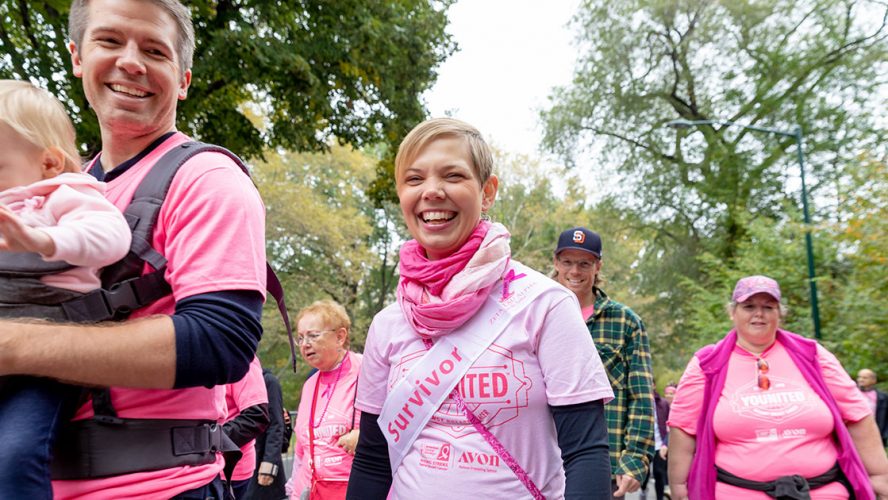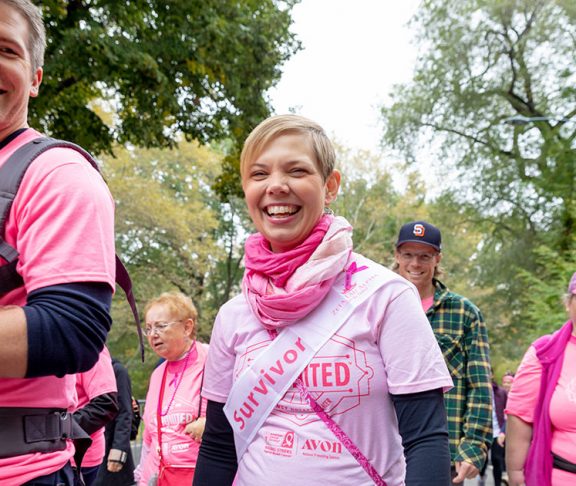Shannon Vick of Berkeley Heights, New Jersey was pregnant with her second child when she learned she had breast cancer, the first of her two diagnoses. About five years later, after the cancer had metastasized to her pelvic bone, she was “terrified,” but there were more and better treatment options available to her.
“These treatments, as my doctor put it, work until they don’t work,” said Vick, who now has four children. “So, when or if my protocol stops working, I want another one to be in place that’s just as good or better. I can’t afford cancer research to slow down even for a second.”
Vick attributes her surviving and thriving to cancer research. Without research, the drugs that she is currently on wouldn’t be available, she said, nor would new treatments be on the horizon.
Experts fear the pandemic has put the future of cancer research at risk because research takes decades to come to life. Today’s cancer breakthroughs began perhaps 10 to 20 years ago with a novel idea from a single investigator. Incremental discoveries push research forward over a period of years or decades, and breakthroughs occur only after years of foundational work. But much of that work has been put on hold, or faced being halted, because of a lack of funding.
“This is a once in a generation crisis,” said Dr. William Cance, chief medical and scientific officer of the American Cancer Society (ACS). “If researchers cannot get funding many will shift their careers in another direction — potentially losing the next big cancer-related breakthrough.”
It’s crucial to keep the pipeline of cancer research full, Cance explained, not only to discover new and better treatments and potential cures, but also to continue work to advance health equity. For example, Black women have a death rate that’s almost 40 percent higher than white women. The ACS is funding research to determine why this is happening and to correct it.
“Cancer is a disease that affects everyone, but it is a disease that does not affect everyone equally,” said Cance. “We cannot let lack of funding stand in the way of everyone being able to prevent and fight this disease equally.”
Great strides have been made in the fight against breast cancer. Breast cancer death rates among women declined 40 percent from 1989 to 2016, largely due to improvements in early detection and treatment. Still, breast cancer remains the second most common cancer type diagnosed in women after skin cancer, and breast cancer is still the second leading cause of cancer death in women, second only to lung cancer.
According to the American Cancer Society Cancer Facts & Figures, in 2020 an estimated 279,100 women and men in the United States will be diagnosed with breast cancer and 42,690 will die from the disease.
“[Lack of funding] could effect a generation of new scientists,” said Dr. Darren Roblyer of Boston University’s School of Engineering, who is developing a wearable probe to monitor breast tumors during therapy. “If we lost funding for the lab, that means that we can’t make the findings that we might otherwise have that could help cancer patients. And more than that, it means that some PhD students, or post-docs that were being trained in this area might have to switch to other fields or go out of research altogether.”
Since cancer patients are reluctant to go to a clinic unless it’s absolutely necessary, many laboratories, especially those focused on point-of-care technologies, are trying to see how can they can develop new tools that can be used by cancer patients at home to help monitor their care, said Dr. Shannon Stott of Massachusetts General Hospital Cancer Center.
“Families have been hit hard at home, so the economic impact has dramatically effected cancer funding,” said Stott. “We are even more motivated to see how we can try to use all of the tools we have in our arsenal to make things better during this time of pandemic.”
The need simply does not stop because of the pandemic, cancer survivors say.“It doesn’t go away. You get to go on and live your life, but cancer is still there,” said Vick. “Without research, I wouldn’t be here today.”
The American Cancer Society is a global grassroots force of 1.5 million volunteers dedicated to saving lives, celebrating lives, and leading the fight for a world without cancer. From breakthrough research, to free lodging near treatment, a 24/7/365 live helpline, free rides to treatment, and convening powerful activists to create awareness and impact, the Society is the only organization attacking cancer from every angle. For more information, or to lend your support, visit www.cancer.org/fundingresearch or call 1-800-227-2345.

